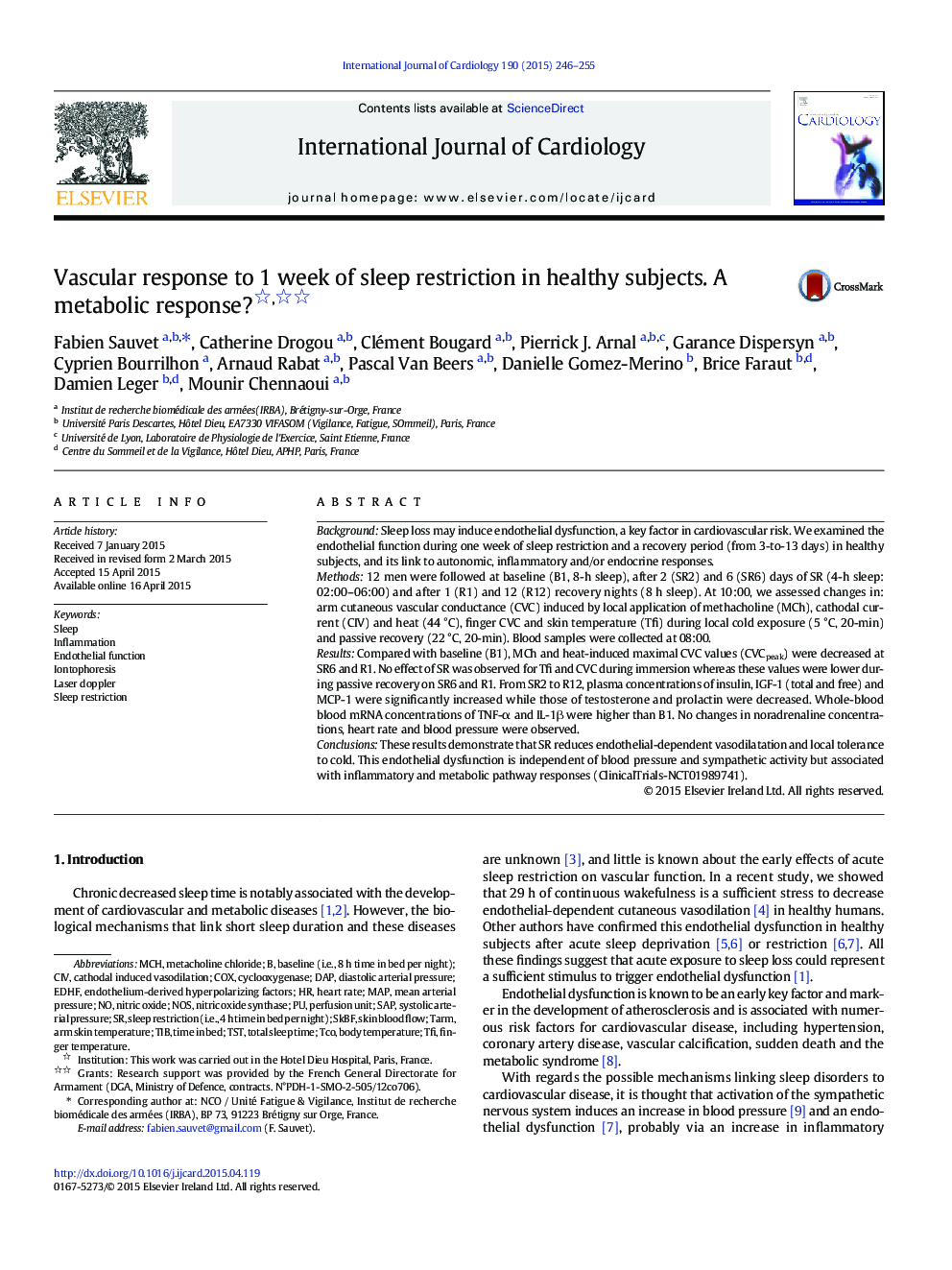| Article ID | Journal | Published Year | Pages | File Type |
|---|---|---|---|---|
| 5966582 | International Journal of Cardiology | 2015 | 10 Pages |
â¢We examine the impact of sleep restriction on endothelial function.â¢One week of sleep restriction alters endothelial function in healthy subjects.â¢We observed an inflammatory and metabolic response to sleep deprivation.â¢No effect of sleep restriction on blood pressure or heart rate was observed.â¢Changes persist after 2 recovery nights.
BackgroundSleep loss may induce endothelial dysfunction, a key factor in cardiovascular risk. We examined the endothelial function during one week of sleep restriction and a recovery period (from 3-to-13 days) in healthy subjects, and its link to autonomic, inflammatory and/or endocrine responses.Methods12 men were followed at baseline (B1, 8-h sleep), after 2 (SR2) and 6 (SR6) days of SR (4-h sleep: 02:00-06:00) and after 1 (R1) and 12 (R12) recovery nights (8 h sleep). At 10:00, we assessed changes in: arm cutaneous vascular conductance (CVC) induced by local application of methacholine (MCh), cathodal current (CIV) and heat (44 °C), finger CVC and skin temperature (Tfi) during local cold exposure (5 °C, 20-min) and passive recovery (22 °C, 20-min). Blood samples were collected at 08:00.ResultsCompared with baseline (B1), MCh and heat-induced maximal CVC values (CVCpeak) were decreased at SR6 and R1. No effect of SR was observed for Tfi and CVC during immersion whereas these values were lower during passive recovery on SR6 and R1. From SR2 to R12, plasma concentrations of insulin, IGF-1 (total and free) and MCP-1 were significantly increased while those of testosterone and prolactin were decreased. Whole-blood blood mRNA concentrations of TNF-α and IL-1β were higher than B1. No changes in noradrenaline concentrations, heart rate and blood pressure were observed.ConclusionsThese results demonstrate that SR reduces endothelial-dependent vasodilatation and local tolerance to cold. This endothelial dysfunction is independent of blood pressure and sympathetic activity but associated with inflammatory and metabolic pathway responses (ClinicalTrials-NCT01989741).
